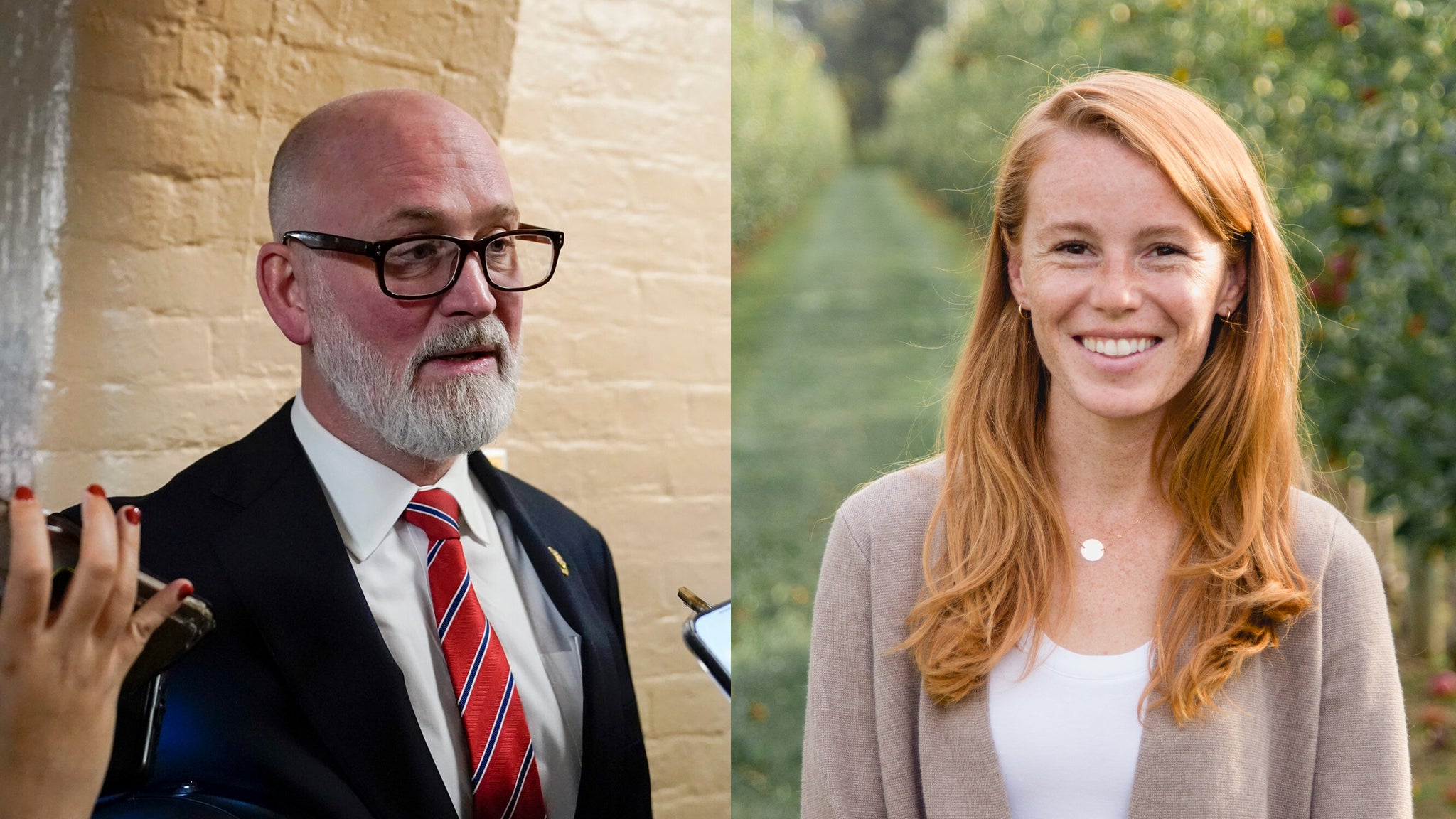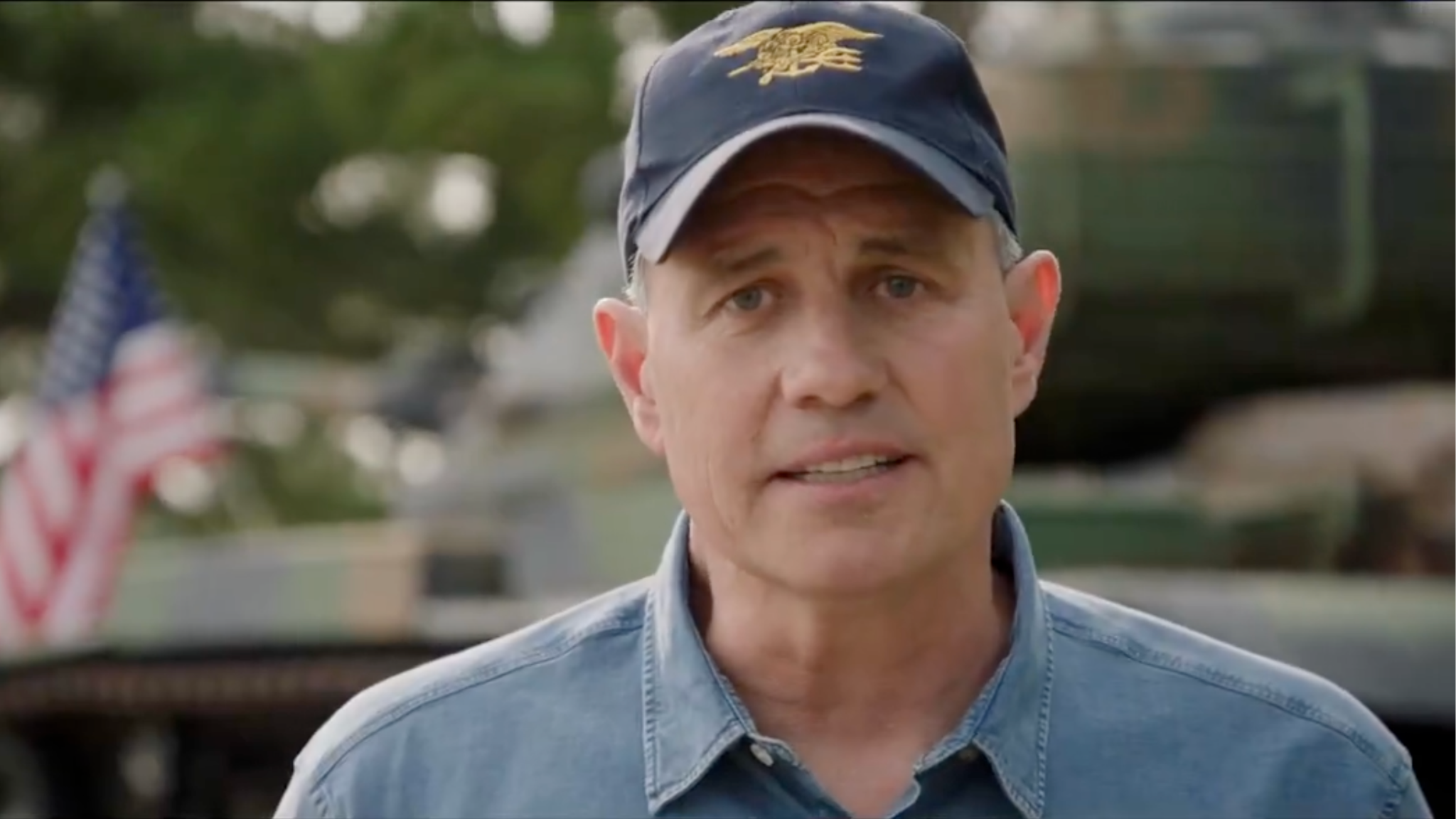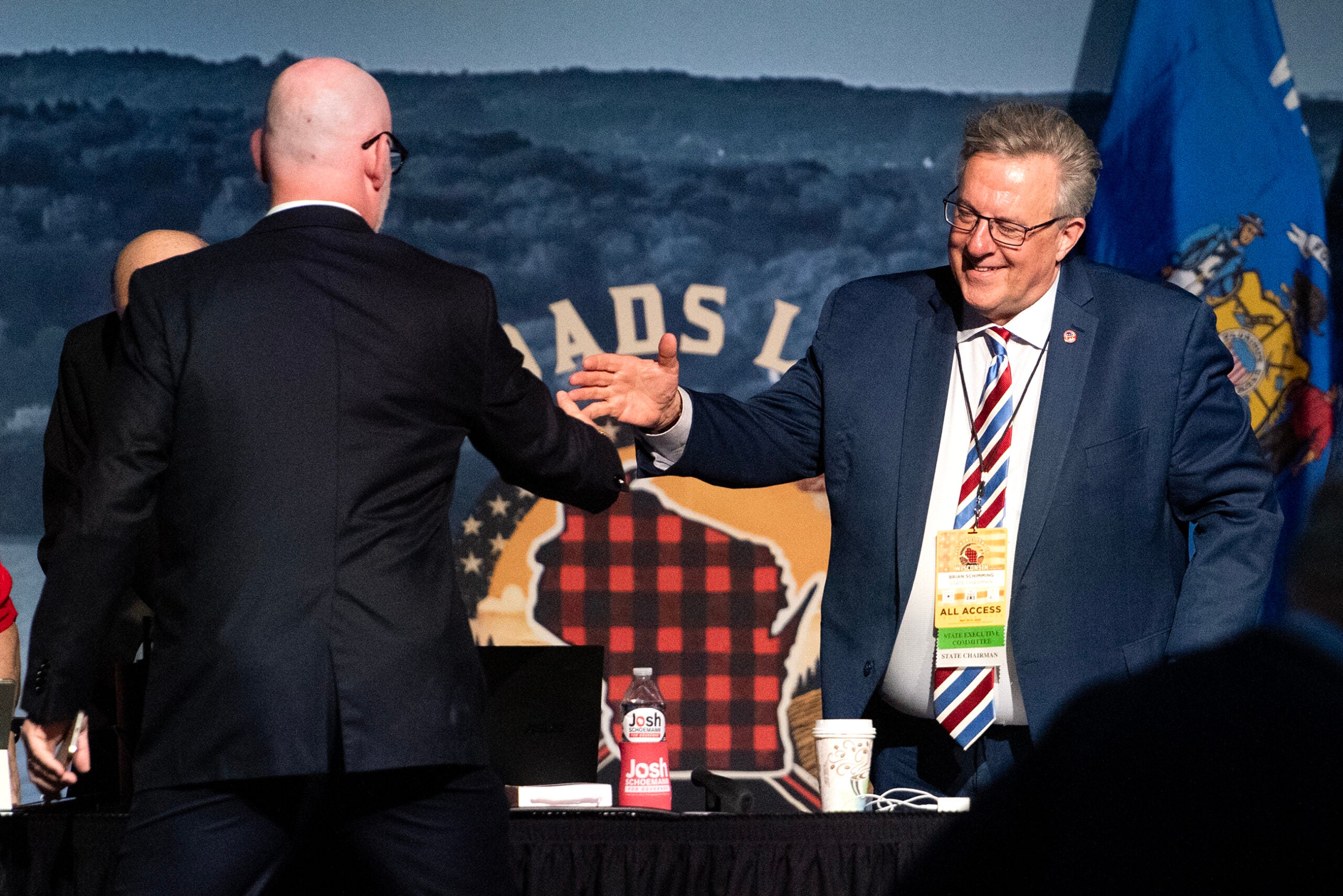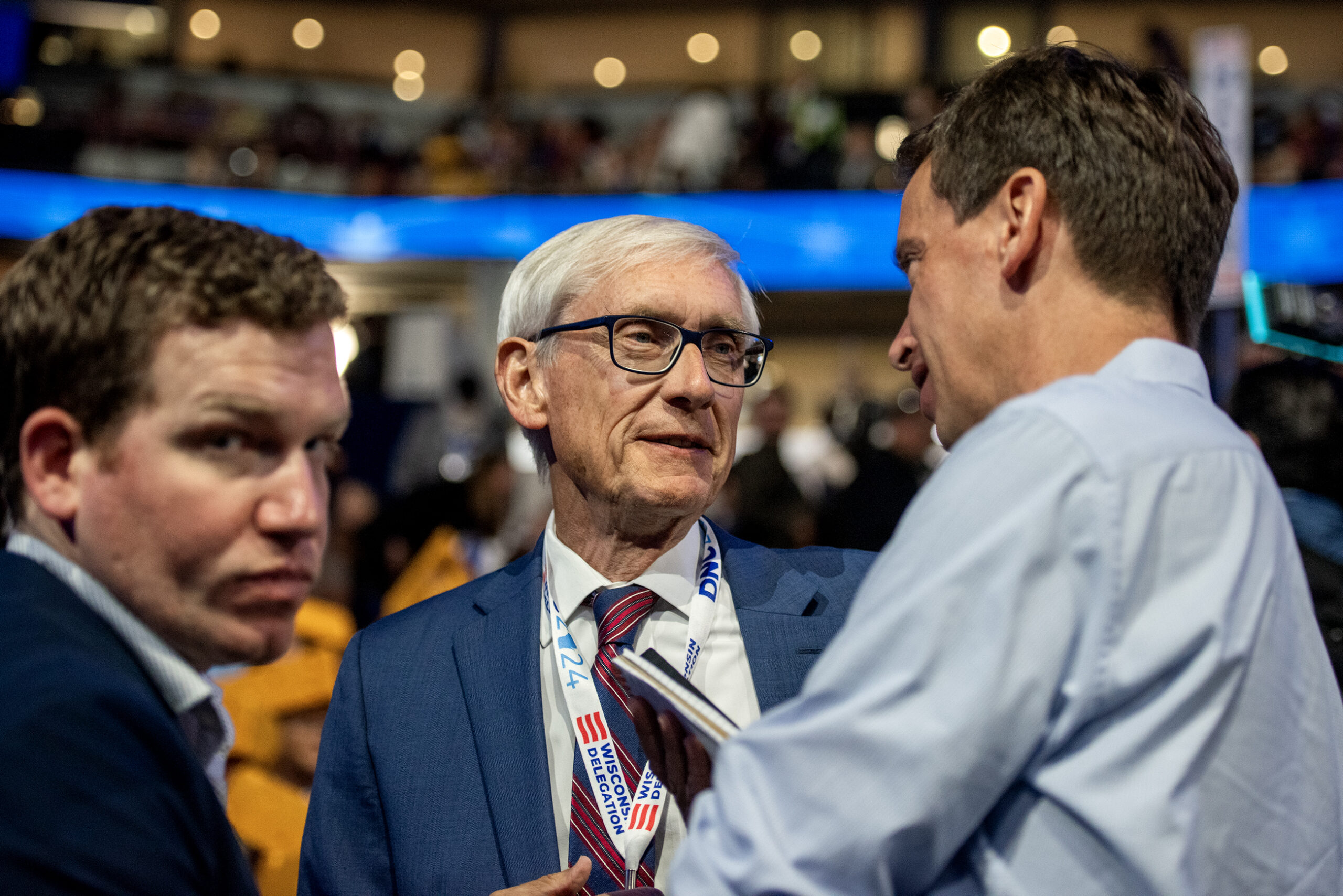When the Wisconsin Assembly met to debate a complete overhaul of the state’s campaign finance laws in October of 2015, some Democrats were sounding the alarm. Others predicted doom.
Their party had been in the minority for about five years by this point, and then-Gov. Scott Walker and Republicans who ran the Legislature had already left their mark on state government. The GOP had passed laws that weakened the power of unions, long an ally of Democrats. Republicans had also redrawn the state’s legislative map to entrench their power.
Walker’s star had risen in national politics, and Republican majorities in the Legislature had actually grown. The Wisconsin GOP was regarded nationally as a well-oiled political machine.
News with a little more humanity
WPR’s “Wisconsin Today” newsletter keeps you connected to the state you love without feeling overwhelmed. No paywall. No agenda. No corporate filter.
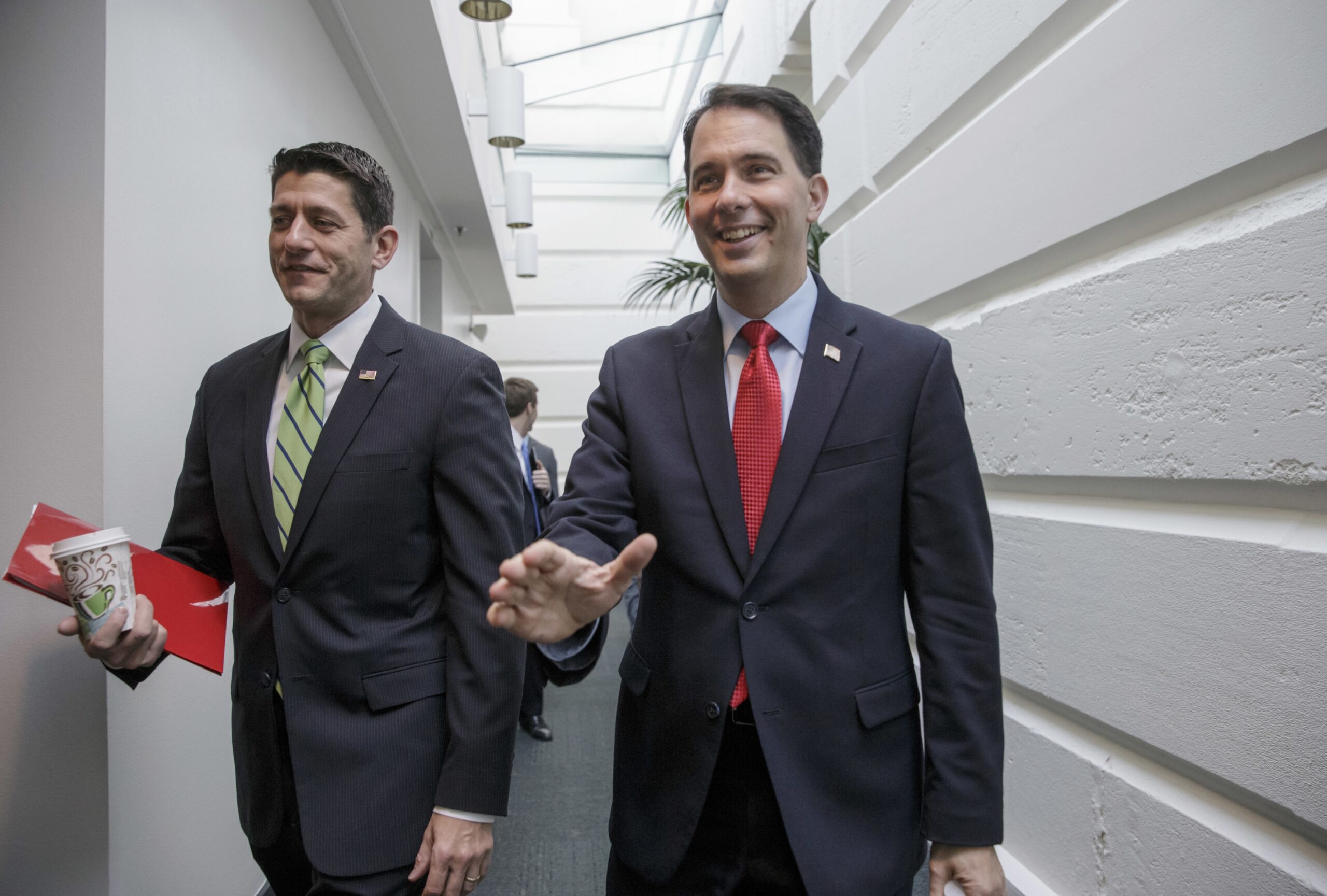
Wisconsin Republicans were poised to toss out the state’s old system for funding political campaigns and replace it with a new one where money could flow more freely. Democrats were concerned the bulk of that money would be flowing to the state GOP.
“This is purely for the legislators on the Republican side who want to consolidate power and money,” said then-Rep. Deb Kolste, a Democrat from Janesville.
“We are here today discussing Republican bills that will make Wisconsin open for corruption,” said state Rep. Lisa Subeck, D-Madison.
“This is something that just sits in my heart and it hurts,” said then-Rep. Andy Jorgensen, a Fort Atkinson Democrat who called the campaign finance overhaul “the Republican corruption coup de grâce.”
Flash forward to 2024, and it hasn’t turned out the way many expected.
In recent years, the Democratic Party of Wisconsin has far outpaced Republicans when it comes to using unlimited donations to their advantage. This year, both parties could use the law to raise money as they fight for control of the Legislature one district at a time.
“It’s changed the game as we know it, in its entirety,” said Nick Ramos, executive director of the Wisconsin Democracy Campaign, a campaign finance watchdog group. “It just ends up becoming this arms race.”

Republicans authored the law that gave state political parties more power
The switch to allowing unlimited donations to Wisconsin’s political parties in 2015 was no accident. It was very much by design.
Recent rulings from the federal court system had struck down some efforts to regulate campaign finance. Most notably, the U.S. Supreme Court’s 2010 Citizens United ruling struck down a nationwide ban on political donations from corporations.
Closer to home, the 7th Circuit U.S. Court of Appeals in Chicago had cast serious doubt on Wisconsin’s old campaign finance laws. In May of 2014, conservative U.S. Appeals Judge Diane Sykes wrote that “Wisconsin’s foundational campaign-finance law is in serious need of legislative attention.” Sykes’ opinion described Wisconsin’s system as a “a dizzying array of statutes and rules,” some of which were “obviously unconstitutional.”
A Sept. 2014 ruling by conservative U.S. District Court Judge Rudolph Randa took this even further, blocking enforcement of the Wisconsin law that limited political party donations. Big donors took notice, predominantly on the Republican side to start. That year, conservative mega donor and casino magnate Sheldon Adelson donated $650,000 to the state Republican Party. Almost immediately, the state GOP transferred $450,000 to Walker’s campaign.
Republicans referenced these court decisions in 2015 when they introduced the overhaul of Wisconsin’s campaign regulations, which was authored by Assembly Speaker Robin Vos, the powerful Republican from Rochester.
“I would rather have money go to a political party where it is all disclosed,” Vos told lawmakers at a public hearing on the plan. “And that’s what’s set up in this bill.”
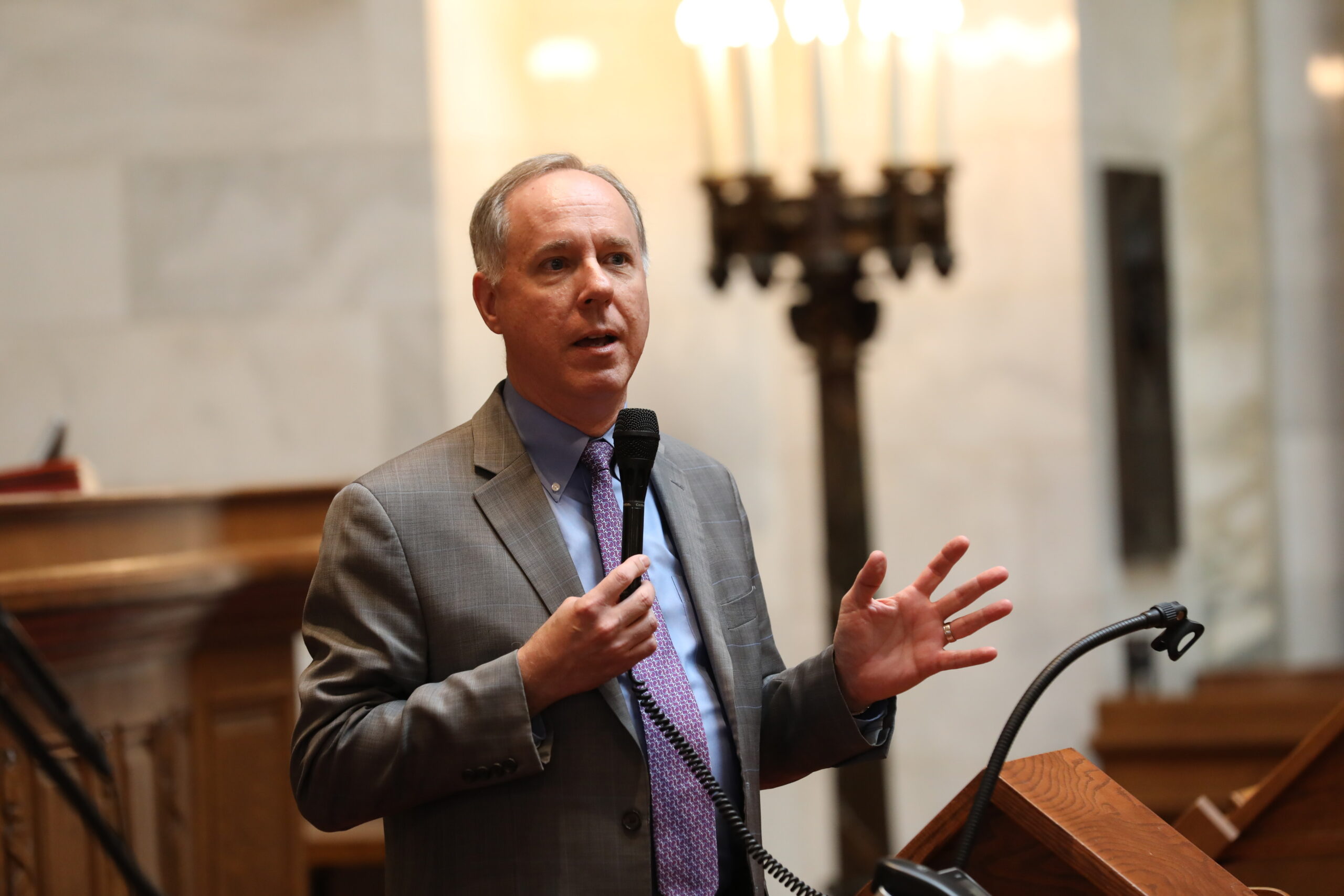
When Vos’ bill came up for a vote in the full Assembly in October of 2015, much of the debate focused on how it made it easier for corporations to donate money in Wisconsin. Republicans said this would follow the example of the U.S. Supreme Court and put businesses on an even playing field with unions while Democrats said it would lead to widespread corruption.
To underscore their opposition, every Assembly Democrat abstained from voting on the bill, calling it a conflict of interest for lawmakers to rewrite the very rules that govern their campaigns. It passed with only Republican votes.
Donations surge in races for governor, Supreme Court
While both parties took advantage of the power to raise unlimited funds, in the early-going, it was Republicans who leaned on it more in statewide races.
In the 2018 campaign for governor, records compiled by the Wisconsin Democracy Campaign show Walker received more than $5 million from the Republican Party of Wisconsin. His Democratic challenger that year, then-Superintendent of Public Instruction Tony Evers, raised more than $700,000 from the Democratic Party of Wisconsin.
But after he defeated Walker and campaigned for a second term, donations to Evers’ campaign from the Democratic Party of Wisconsin surged. The party gave Evers more than $18 million, according to the Democracy Campaign. Evers’ Republican opponent, Tim Michels, largely self-funded his campaign, receiving much less — about $4.7 million — from the state GOP.
The Democratic Party used this tactic again in the 2023 race for Wisconsin Supreme Court, an ostensibly nonpartisan office. It donated nearly $10 million to now-Justice Janet Protasiewicz, helping liberals flip the court for the first time in 14 years. The contributions were substantial enough that Protasiewicz vowed to recuse herself from any cases involving the state party.
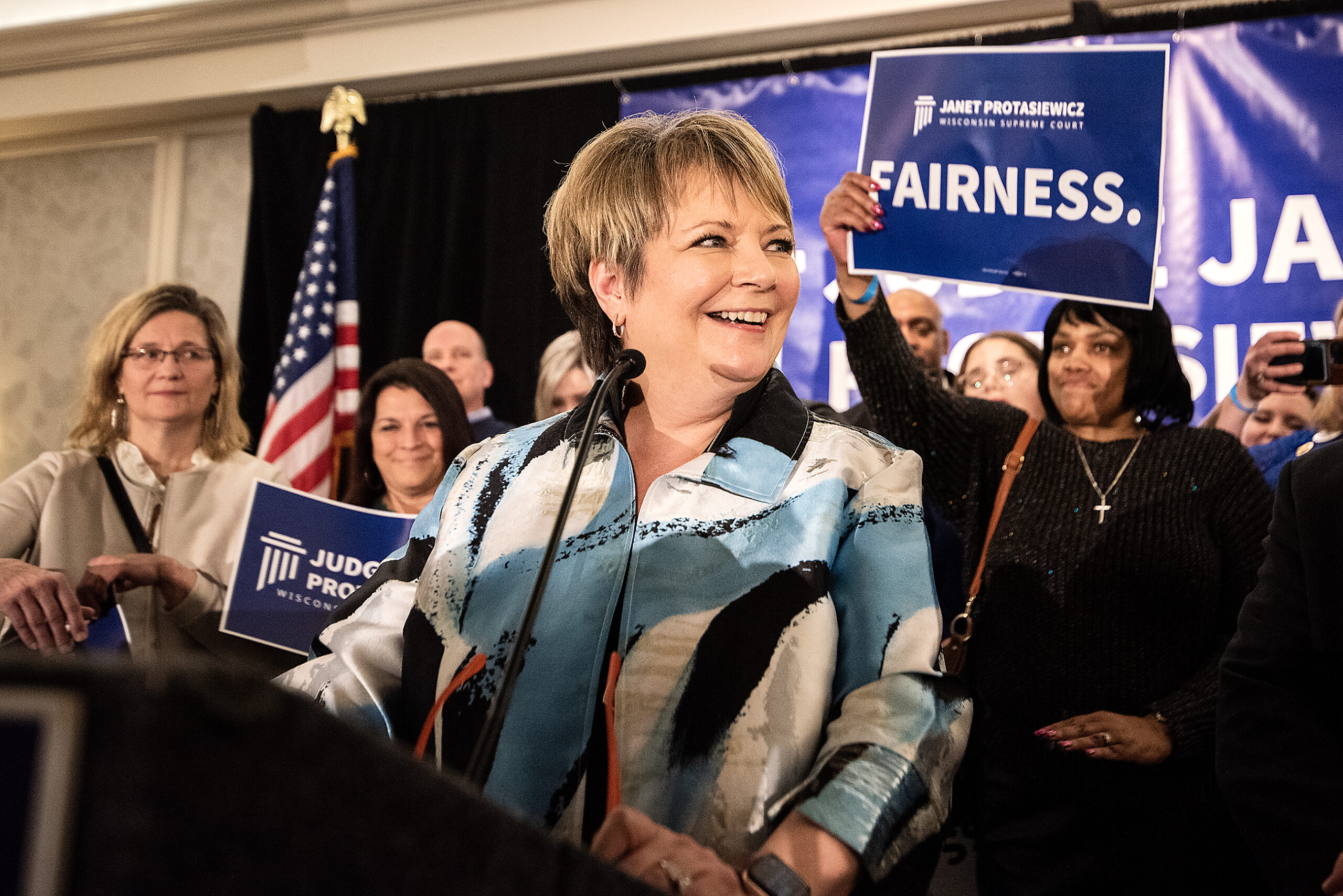
Her conservative opponent, then-Justice Dan Kelly, received less than $1 million from the Republican Party to cover “in-kind” expenses, such as mail. Outside groups, which can also accept unlimited donations, helped Kelly close the gap, spending nearly $17 million on his behalf, according to the Democracy Campaign.
The problem for Kelly was that outside groups pay higher rates for TV advertising, so the money raised by the Democratic Party of Wisconsin, then transferred to Protasiewicz, simply went further.
“Candidates get cheaper TV ads than independent groups,” said Democratic Party of Wisconsin Chair Ben Wikler at a Madison campaign rally supporting Protasiewicz. “So even when we’re being outspent, we’re out-communicating them.”
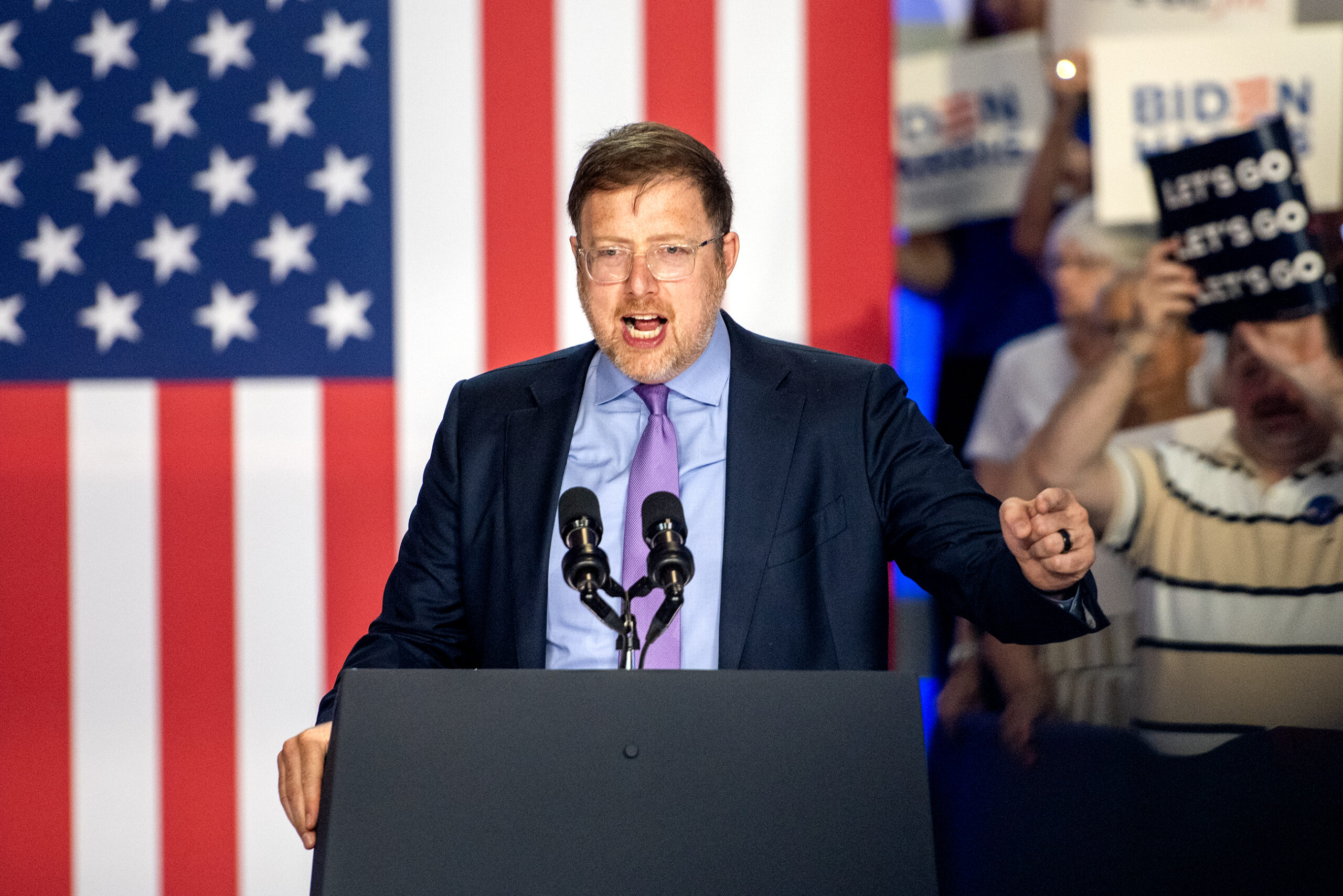
Big donations flow to parties as race for the Legislature looms large
While both parties tout their networks of small donors, it’s big donors — people who are willing to give millions to support a political cause — who’ve had an outsized influence on Wisconsin politics under this system.
New fundraising numbers are due Monday, but in the first half of this year, the state Democratic Party raised 10 times more than the state GOP bringing in a total of $11 million compared to a little over a million for the state GOP. The leading Democratic donor was LinkedIn founder Reid Hoffman of California who gave $3 million, followed by Kenneth James Duda, who founded the networking company Arista Networks, who gave $1 million. George Soros, the Democratic mega-donor and philanthropist from New York, also gave $1 million.
On the Republican side, the top donor was Diane Hendricks, the Beloit billionaire homebuilder, who gave $237,650.
The 2015 campaign finance law that allowed for unlimited donations to Wisconsin’s political parties gave legislative campaign committees the same power. Wealthy donors can also give whatever they want to the Assembly Democratic Campaign Committee, the Republican Assembly Campaign Committee, the Senate Democratic Campaign Committee and the Committee to Elect a Republican Senate. And those committees, like the state parties, can transfer whatever they want to candidates.
“So it’s almost like money laundering,” said Ramos, with the Democracy Campaign. “It becomes a shell game where you can then take your money and move it around.”
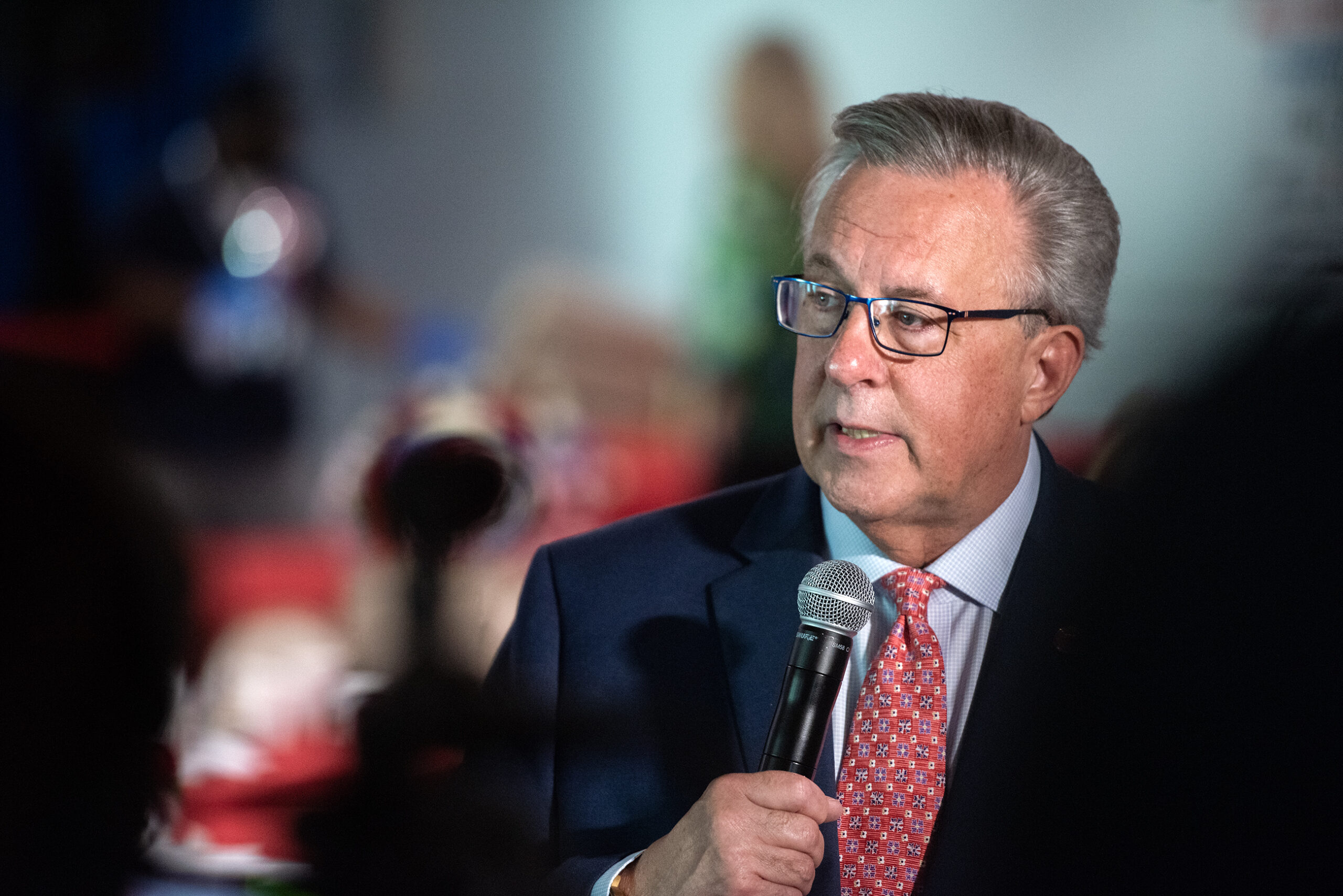
The amounts being sent to state parties and legislative campaign committees dwarf what donors can give to candidates directly. For example, candidates for governor and state Supreme Court can accept a maximum of $20,000 from a single donor. State Senate candidates can only receive a maximum of $2,000. For state Assembly candidates, the ceiling is just $1,000.
The money spent on those districts could be substantially higher this year, thanks to newly-drawn legislative maps that give either party a chance of winning the Legislature. There are more seats than usual up for grabs in the Legislature, and both parties have a plausible chance of winning a majority in the state Assembly. Assembly Democratic Minority Leader Greta Neubauer of Racine said earlier this year that there were about 15 competitive Assembly seats where her party could spend more than $1 million.
Ramos, whose group advocates for reducing the influence of money in politics, said he’s had “meaningful” conversations with like-minded lawmakers who want to see the same thing.
“But then we end up getting to election season, and it’s like everybody has amnesia,” Ramos said. “And they’re like, ‘We need to beat the other guys. We need to beat the other gals. And we need to reach and outraise the hell out of these other people.’ And they know how to do it so artfully.”
Wisconsin Public Radio, © Copyright 2025, Board of Regents of the University of Wisconsin System and Wisconsin Educational Communications Board.



